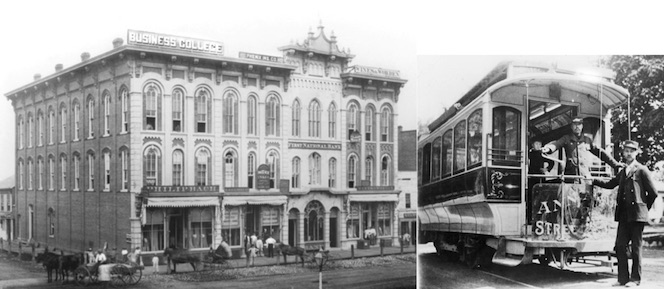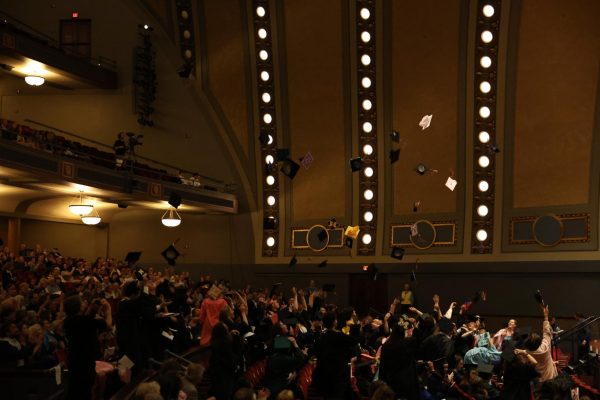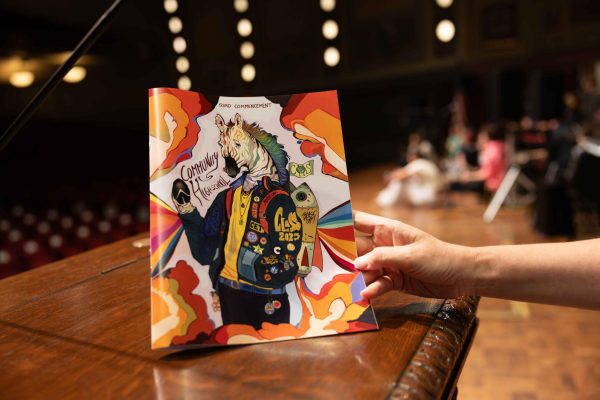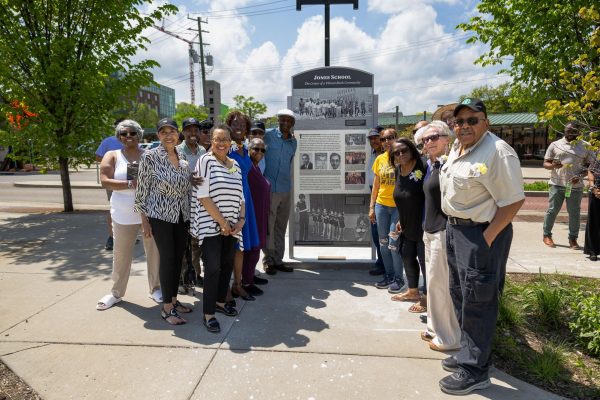Ray Detter Local History Award: Ann Arbor’s deep history
Ray Detter is a local historian who is the mover and shaker behind the historical markers located all around Ann Arbor. In the spring, he runs the local history tours that Community High School students participate in. Detter got an endowment for continuing his research for local history and decided to use some of that money to encourage students to learn more about it.
Ann Arbor was one of the first places that had an abolitionist newspaper and it has been a seed of protest and activism for civil rights. “[I love the history of Ann Arbor] because I love history and I always like to know the history of the place where I am at,” Cindy Haidu-Banks said. “I think that there is something about the energy of the history of a place.”
Detter created a scholarship to encourage all high school students to dig deeper into Ann Arbor’s history. The scholarship is given to students who create a project on local history.
“But there are also aspects of the history that is not so cool like redlining, [where] black families could only buy houses in certain neighborhoods,” Haidu-Banks said. “And some of those parts of history are not talked about so much. I think that it needs to also be a part of what is studied in history and to also to know how far we have come and maybe even where we need to go further in terms of equitable housing in Ann Arbor.”
Haidu-Banks believes that talking about subjects like redlining would make people uncomfortable but that it is an important part of Ann Arbor’s history that needs to be talked about. “I think that it needs to also be a part of what is studied in history and to also to know how far we have come,” Haidu-Banks said. “I think that there is still something to be learned from the negative history that has happened in our country and I think it keeps playing itself out until we really face it head on and talk about it. People are still bruised and injured from that history and are still living that. I would say that it is going to be rewarding.”
There are a lot of resources here that are relatively untapped by lour high school students. The Ann Arbor Public Library has an incredible resource of newspaper articles and primary source documents of the history of Ann Arbor and way back to the settling of Ann Arbor. “If [students] have an idea, I could certainly refer them to where they could find more resources, give them some direct or just talk and brainstorm with them,” Haidu-Banks said.
Recently, Haidu-Banks did some digging around when she was trying to find the native history behind our area which is relatively undocumented. “There are not a lot of plaques and now all of that is happening,” Haidu-Banks said. “Native people are acknowledged on plaques and on historical markers but for a long time, they were just acknowledged on boulders that were placed around the city in the 1920s. Now their story is being told too.”
In result of Haidu-Banks through research, she found that Ann Arbor was a hub for native activity. Before there were settlers, native people from all over were meeting here. The trails that lead from Ann Arbor are like spokes on a wheel, they lead to all parts of our state and to the lakes and to out of state. “We were a hub to activity, native activity, right here,” Haidu-Banks said.
Ann Arbor has a deep and rich history that not everyone is aware of. The project could range from a written paper to a model. “An individual can make a difference,” Haidu-Banks said.
Here is how to apply:
- Provide your name, contact address, phone number, and email. Be sure to indicate which Ann Arbor school you attend.
- Write a brief statement describing your local history project and the benefits it provides to our community. Include a statement to indicate the project is your own work.
- Submit project materials in hard copy, digital, or with links to online resources.
- Include one letter of support, with the letter writer describing their familiarity with your project and why you should receive the award.
For questions or more information, contact Project Chairperson Chris Crockett at christinecrockett8@gmail.com. We invite applicants to review their project with a committee member anytime prior to the final submission date.
Submit your completed project by April 30th, 2019, by email or in person to Project Chair Christine Crockett at 506 E. Kingsley Street, Ann Arbor, MI 48104. All applicants will be notified of the committee’s decision by May 15th. Winner(s) will receive the award and special recognition at an Ann Arbor City Council meeting in June 2019.














